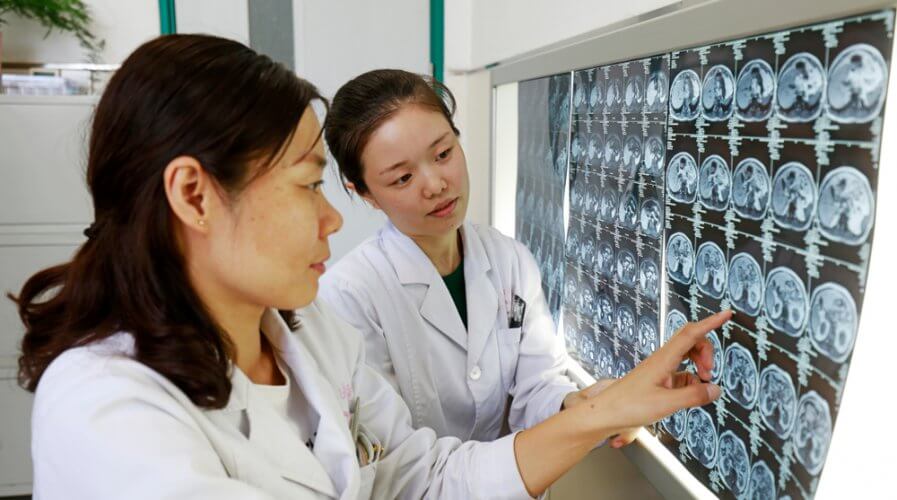
Medical professionals are able to provide better care alongside AI tools. Source: Shutterstock
AI fuels collaboration and smarter decisions in healthcare
Endless misconceptions surround the premise of deploying artificial intelligence (AI) solutions in organizational processes with many insisting that intelligent machines will dominate the workforce. Within healthcare facilities, especially, many fear that AI will gradually drain the “human touch” from medical care when in reality, the technology is significantly revolutionizing decision-making processes and augmenting contact time between patients and providers.
These are not just empty claims as a survey by the MIT Technology Review revealed that a staggering 80 percent of healthcare providers are already reaping the benefits of AI tools and seeing results in expanded revenues. While it has been established that AI can help automate processes, augment analytics capabilities and empower specific data-driven applications, medical facilities have further explored how AI solutions can be integrated cohesively to create a network of connected clinical systems.
This, in turn, allows providers to work efficiently and increase collaboration between colleagues and between man and machine. According to the survey, facilities with full AI deployment allow providers to spend 68 percent more time collaborating with other staff as the network of connected systems allows constant access to real-time data.
AI-enabled automated administrative processes is an important part of establishing this synergy as it relieves providers from the burden of data entry workload during consultation time and enhances medical diagnosis.
With real-time analytics capabilities, medical professionals can work alongside intelligent systems to produce accurate and insightful diagnoses during consultations. When tailored properly, AI can also be programmed to automatically schedule clinical follow-ups or medical appointments based on the needs of patients which eliminates the time staffers manually spent allocating slots.
Staff also collaborate effectively because automated systems shift the dynamics from providers having more focus on meeting the demands of manual administrative systems to having intelligent, connected systems work for providers.
Once a more collaborative workforce is established, providers can now scale AI-powered connected systems to process patients’ data and augment predictive analytics in driving smarter decisions. Using advanced analytical tools, data-justified predictive capabilities, and healthcare professionals’ expertise, both medical and operational decision-making processes can be more accurate as well as precise.
This is further supported by 93 percent of providers who agree that AI boosts the speed and accuracy at which patient data is analyzed and shared. As a result, patient care and treatment can be delivered more efficiently and speedily without the need to wait for manual data updates and analysis.
The future of healthcare will see greater prominence of “human touch” inpatient care, and improved processes when medical systems are powered with AI solutions. Cardiologist Bijoy Khandheria says it best, “humans are not going away; they are just going to make smarter decisions, with fewer errors.”
READ MORE
- Ethical AI: The renewed importance of safeguarding data and customer privacy in Generative AI applications
- How Japan balances AI-driven opportunities with cybersecurity needs
- Deploying SASE: Benchmarking your approach
- Insurance everywhere all at once: the digital transformation of the APAC insurance industry
- Google parent Alphabet eyes HubSpot: A potential acquisition shaping the future of CRM


